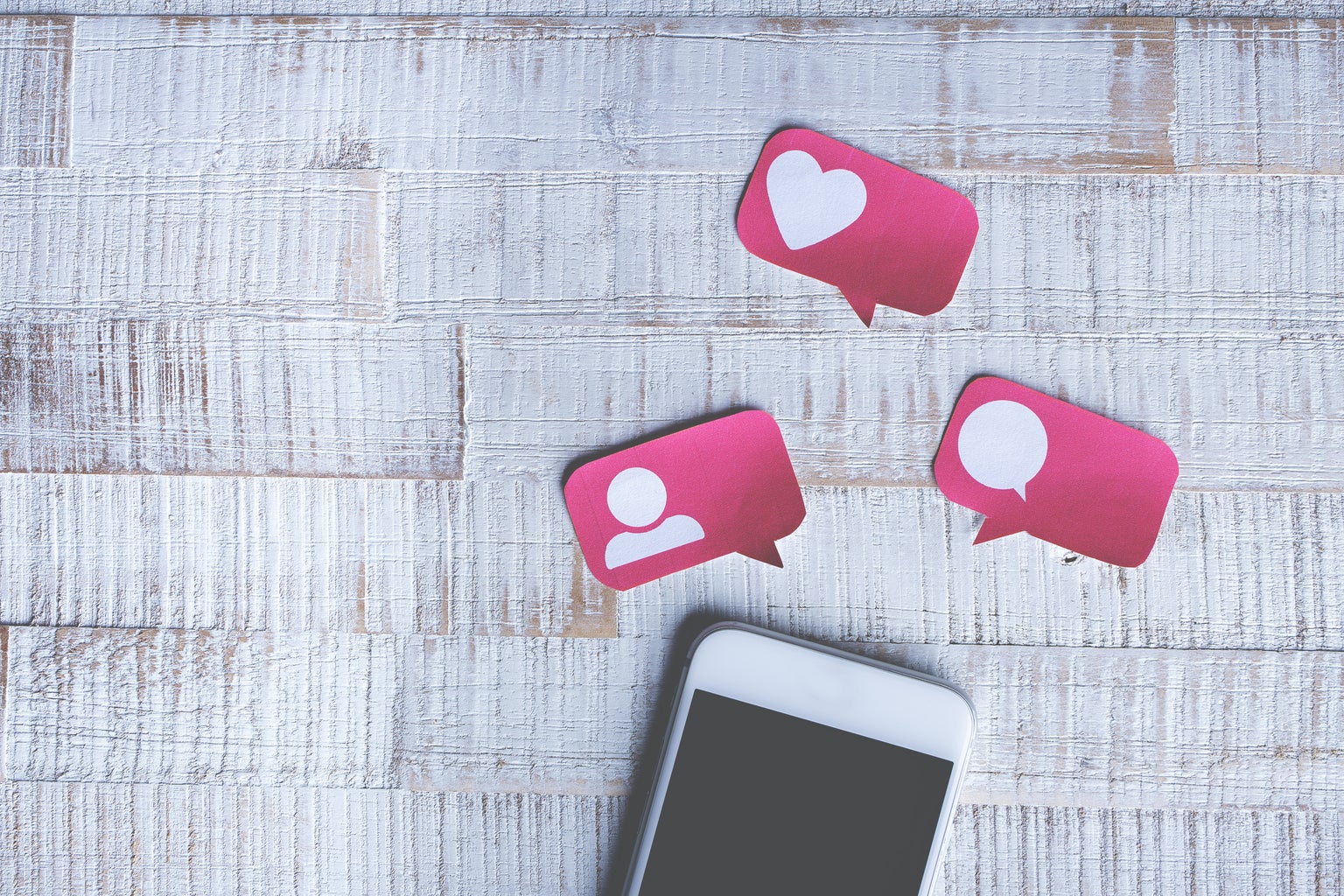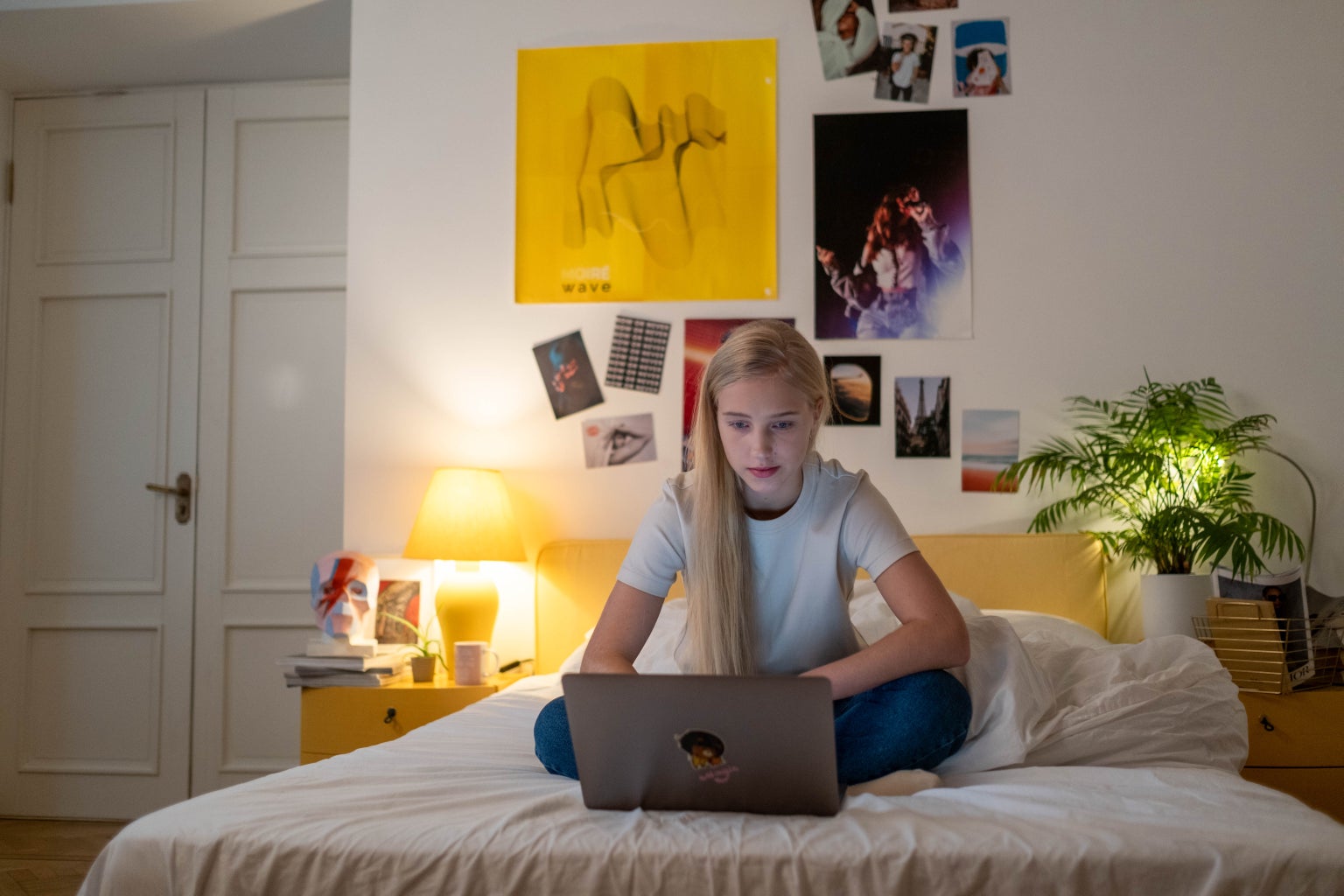It’s 10 a.m. I just woke up an hour ago. I cleaned myself up after having breakfast. I unlock my phone and the first things on my screen are Twitter notifications and Youtube uploads. I go on Instagram first, and one of the first few posts on my feed is a beautiful woman in a white collarless dress sitting among an assortment of flowers.
Her recently dyed chocolate brown hair is perfectly styled in light waves, matching the pink shade of lipstick she wears. I happily like the post, and scroll down more to find photos of the other group members who have also posted. I wonder if with all the recent hairstyle changes, Dreamcatcher is about to have a comeback with a new album, and the thought leaves me excited for the rest of the morning.
The day goes on as I watch video compilations of Pentagon, a recent group I had started listening to, as a way to get to learn more about the members. Afterwards, I spend the day doing coursework, with an orchestra version of Seventeen’s music playing in the background. Behind my desk, are two large bookcases. They mostly contain YA novels, some of which I haven’t read yet, but on the top shelf are K-Pop albums.
Depending on the group, I have only a copy of their recent albums, only a singular favorite, or the group’s entire discography, some even pre-debut. Some album versions have multiple versions, with a different themed photoshoot.
I have been a fan of K-Pop groups since 2017, when the Hallyu wave reached new international heights in the West, with more fans accumulating each day. What makes K-Pop so appealing?
What Are Parasocial Relationships?
A parasocial relationship is a one-sided relationship where one person invests their energy, interest, and time in the other person’s persona, who usually is unaware of that individual’s existence specifically. One main example occurs between fans and people who they idolize, such as celebrities, Youtubers, influencers, athletes, etc.
During recent years, parasocial relationships have become more intimate and powerful due to the internet and social media. With celebrities being able to connect more closely, fans are able to engage with their idols more easily. This is especially true in Korean pop entertainment.
K-Pop encompasses many musical genres and messages, and each group delivers their own concept, some with its own lore and storylines. For example, Ateez is an eight-member boy group that has an ongoing pirate theme and alludes to time travel lore throughout their music. Dreamcatcher is a rock-based female group with their recent trilogy exploring finding a utopia amid the toxic internet webspace. AleXa, a soloist, has a futuristic AI storyline throughout her songs as a cyborg protecting the world.
Songs encompass a variety of topics, such as different kinds of love. There is self-love in Jin’s solo “Epiphany,” the feelings of a breakup in Pentagon’s “Daisy”, or The Rose’s beautiful rock ballad “Beauty and the Beast.” Aside from love, there is also not being able to sleep in Stray Kids’ song “Insomnia,” being yourself in Itzy’s “Wannabe,” or overcoming your personal fears like in N.Flying’s “Moonshot.”
Note: The Rose and N.Flying fall more under the K-band umbrella when it comes to music production and should be their own separate category, but aside from that, their publicity and fan interactions are similar.
Aside from album showcases, these groups and soloists also engage in behind the scene photoshoots, go to differently-themed interviews and game shows. They may also host vlogs, have their own TV shows or programs and have individual projects. One example is Mafia Dance, where groups dance to their title track while listening through earpieces covered with earmuffs.
Members selected as the mafia however would hear a different song, so their goal is to complete their choreography without getting caught by the citizens. Other forms of content include mukbangs, workout sessions, debate nights, ASMR, challenges, gaming nights and so much more. Solar of Mamamoo has her own Youtube channel called “solarsido,” where she tries out different things, notably her pole dancing, cutting her own hair, or feeding tigers at a zoo.
On top of these shows, they frequently post across a variety of platforms, such as Twitter, Instagram, VLive, Weverse, their own Fancafe, etc. Some events fans look forward to include members’ birthdays, debut anniversaries, fandom anniversaries (when fandoms are given their designated name) or Selca days, which are monthly and held on a day significant to the group. For example, since Stray Kids debuted on March 25, every 25th of each month is Stay Selca day, where their fanbase known as Stay would post selfies matching members’ previous photos. This multitude of content and interactions is what draws new fans in and keeps current ones in.
Things to Remember About Parasocial Relationships
Believe it or not, parasocial relationships usually are healthy. It’s a normal human function to psychologically form these bonds with someone we come across. These people may become sources of inspiration, by having a strong work ethic, being able to play a musical instrument or simply bringing joy to other people’s lives. They also may be sources of comfort. The term “emotional support K-pop boy” was first coined on Jun, a singer from the group Seventeen. Aside from his childlike humor, acting career and piano skills, Jun is also known for his kindness and genuine nature towards both fans and his members.
On the flip side, celebrities always show gratitude towards their fanbase, such as mentioning them in award speeches or when talking to fans on platforms. Chan of Stray Kids usually hosts his weekly Chan’s Room, where he recommends songs and reads comments addressing Stay’s concerns, and then ends the VLive with a virtual hug.
From personal experience, I always feel honored and grateful whenever readers leave encouraging comments of excitement under my stories. It makes me happy to know that I’ve made someone else feel the same way through my work, and it gives me motivation. I assume idols have similar sentiments. It’s a wonderful feeling to be able to make someone’s day more positive.
However, it becomes a concern when the parasocial relationship turns into an obsession instead of admiration. This includes things like being territorial, neglecting others along with yourself and becoming hyper focused on nothing but this person. It’s one thing to have agency with how you spend your time and money, however, if it starts to negatively impact your work ethic by taking time away from friends and family or putting you into financial debt, you may need a reality check.
It’s important to remember that celebrities’ public image is supposed to be flawless. I am not insinuating that the people you see on your screen are not authentic. Rather, similarly to how you would not want to portray the worst parts of yourself to the world, you would want your audience to only see the good aspects of yourself. This is also their career, so idols will do what they can in their power to please fans.
Additionally, these celebrities are still people. If idols make inappropriate comments, people can respectfully inform them that it’s not okay. If such behavior persists, people are allowed to not be fans anymore. Idols should not be demonized with extreme hate or become victims in cancel culture, and they also shouldn’t be infantilized and be aggressively defended for their errors, both two extremes I’ve witnessed on Twitter.
Unless morally wrong or illegal, people can make mistakes, be educated, and understand not to do these things again. Most of all, they’re entitled to their own privacy. What they decide to reveal to the public should be on their own terms, no one else’s. Perfect songs that encompass this would be Pentagon’s “Humph!” and I.U’s “BBIBBI”, both of which discuss not crossing the line. At the end of the day, human decency comes first.
Being a fan of someone simply means you admire the person and their work. You are not any less of a fan if you don’t watch all their content, dislike one of their songs, don’t own every single photocard and album in existence or if you don’t stream their music videos. You’re still a fan even if you don’t know 100% about them, like that their English name is Jerry. Being a fan should be uplifting not draining, which would otherwise be toxic.
More importantly, like with any other relationship, remember to prioritize your own wellbeing. This is your life to live, and should not be under anyone else’s terms. If your idols are your safe space, a source of inspiration or you just enjoy their music, keep being a fan with no shame.
Isn’t it incredible to see how these artists have reached different parts of the globe? Getting into K-pop was one of the best things that have ever happened to me. Perhaps it’s strange that I laugh when I watch their shows or cry tears of joy when I see their success. I’ve never been to any of their concerts yet. Maybe I won’t be able to.
They’re people I don’t really know, and they definitely don’t know me either. And that’s okay. They’re just people I look up to who inspire and make me really happy, and I wish that both of us can be happy and successful, too. So now I’ll put my earbuds on, and blast on my dance playlist.





